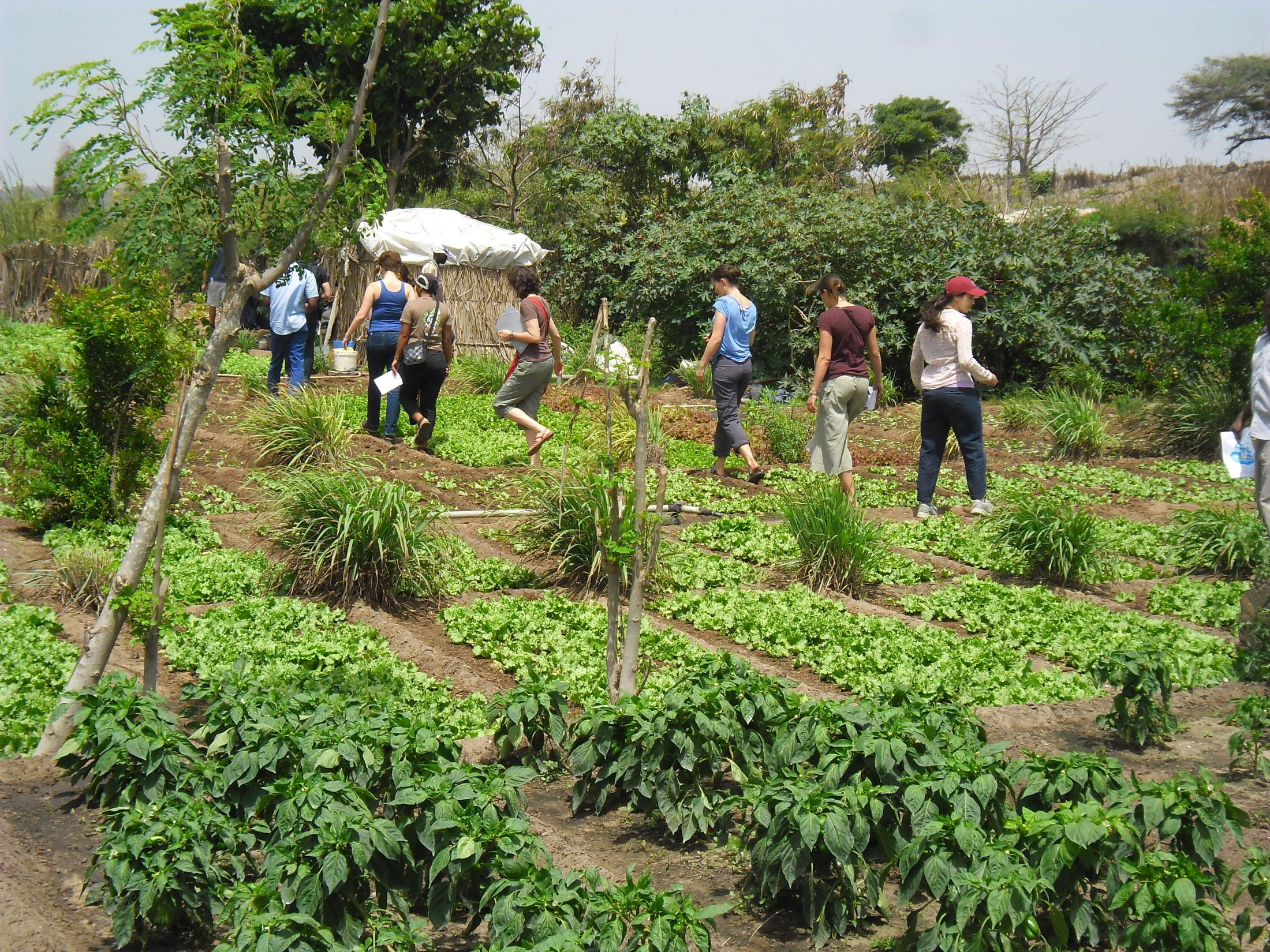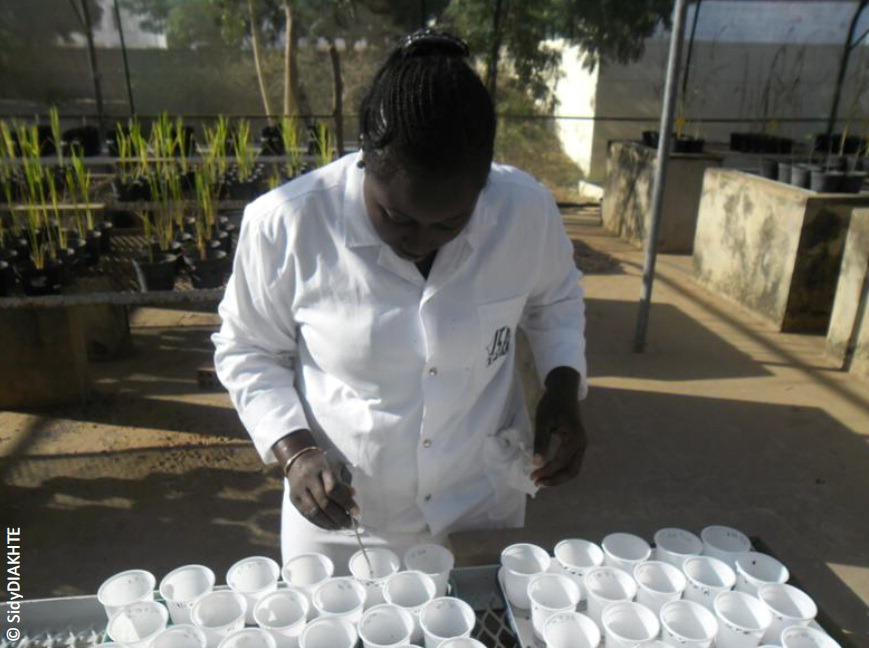Dr. Ndour and her colleagues incubated soil in a climate-controlled chamber for 45 days, after exposure to 10 consecutive days of wet-dry cycles. The applied stress strongly affected biological activities, including basal respiration and enzymatic activities, causing change in the composition of the microbial community influencing the carbon cycle in soil. The presence of the shrub promoted the resilience of microbial communities in soils under its canopy. The researchers noted that decreased rates of basal respiration were more pronounced in soil collected outside the shrub canopy.
Microbial biomass was also strongly influenced by the wet-dry cycles in this study, with soil microbial biomass increasing in stressed soils immediately following disturbance. These results are supported by previous studies. The researchers’ findings suggest that shrub canopy in semi-arid zone is the major driving variable that will control the composition of the microbial community and the role of microbial diversity in soil resilience is not linked to the absolute number of species but related to the functional traits of those species.
The PEER team also cultivated millet in mesocosm on soil collected beneath or outside the shrub canopy and inoculated with a cocktail of three mycorrhizal strains from their collection (Glomus aggregatum, Glomus mossae, and Rhizophagus irregularis), as well as native inoculum and uninoculated control. They grew millet in climate chambers for two months in three different conditions representing heat and water stress. The researchers measured the rate of mycorrhization, shoot biomass, and the microbial activities in soil. They found that elevated temperature did not affect millet’s shoot biomass, but water stress—and water stress combined with higher temperatures—had a negative impact. Elevated temperature decreased the rate of mycorrhization.
Thanks to PEER support, two team members--researcher Dr. Hassna Founoune and PhD student Ms. Sally Datta—had the opportunity to spend two weeks at Virginia Tech in June-July 2017 receiving technical training and conducting research in collaboration with Dr. Mark Williams. While at the university, they performed DNA extractions from soil samples sent from Senegal and then subjected the extracted material to PCR amplification and analysis. With the new skills they gained, the visitors were able to carry out extraction and purification of other samples back in Senegal and apply the results in their study of the molecular biodiversity of soil fungi.
The researchers discussed their results with local farmers in Keur Matar, the National Agency for Agricultural and Rural Council (ANCAR), and a local research network. They presented their work through a total of 17 technical presentations and two publications. The PEER team won three new grants, totaling $252,000, for new and related work from the World Bank, the Senegalese National Academy of Science, and the Senegalese National Ministry of Higher Education and Research.
PublicationsSally Diatta, Sidy Diakhaté, Hassna Founoune-Mboup, Charlotte J. Alster, Diégane Diouf, Richard P. Dick, Lydie Chapuis-Lardy, Laurent Cournac, and Ndeye Yacine Badiane-Ndour. 2019. Temporal microbial response to wetting-drying cycles in soils within and outside the influence of a shrub in the Sahel.
Open Journal of Soil Science 9(12): 284-297.
https://doi.org/10.4236/ojss.2019.912018 Sidy Diakhaté, Ndeye-Yacine Badiane-Ndour, Hassna Founoune-Mboup, Sally Diatta, Abdoulaye Fofana Fall, Rebecca R. Hernandez, Laurent Cournac, Richard Dick, and Lydie Chapuis-Lardy. 2016. Impact of simulated drought stress on soil microbiology, and nematofauna in a native shrub+ millet intercropping system in Senegal.
Open Journal of Soil Science 6(12): 189-203.
http://dx.doi.org/10.4236/ojss.2016.612018 





